

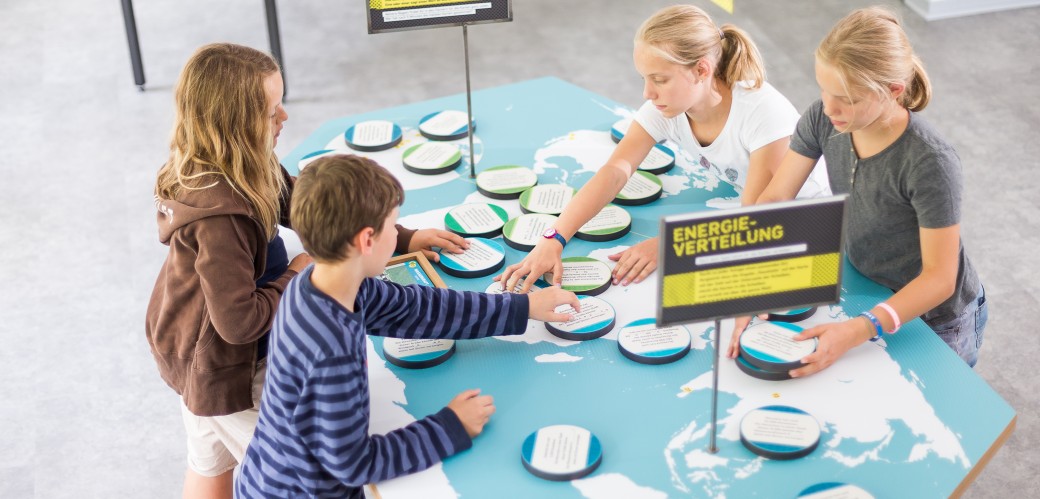
Nothing functions without electricity – no washing machine, no smartphone, no train service, no heart-and-lung machine. Even on a farm electricity is essential for survival! On the other hand, power stations are partly responsible for climate change. The topic “electricity” concerns everyone.
At six workstations pupils play in the electricity workshop and discuss about power generation, the significance of electricity and the consequences for the environment.
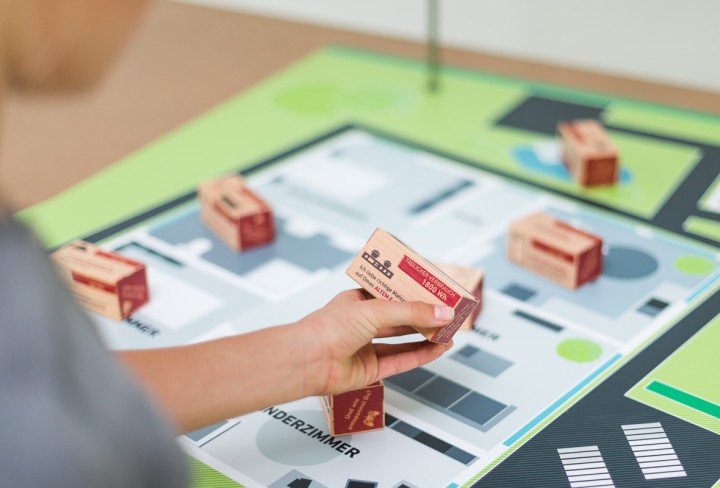
The zdi-pupil laboratory (Zukunft durch Innovation = future through innovation) is directed at pupils from class 5 to class 10 at all types of schools.
In small groups they explore the MINT topics: for example electricity generation using a magnet and a coil or the functioning of a generator. Pupils test what effects the construction of water power plants have on the landscape and in a play-like atmosphere generate a stable electricity network under different conditions. At the end they compete in a computer game which involves finding the best strategic solutions in the event of a severe power failure – who helps with an emergency power supply, blanket, candle and drinking water?
A scout accompanies the group and provides suggestions. The programme is adapted to the level of the class.
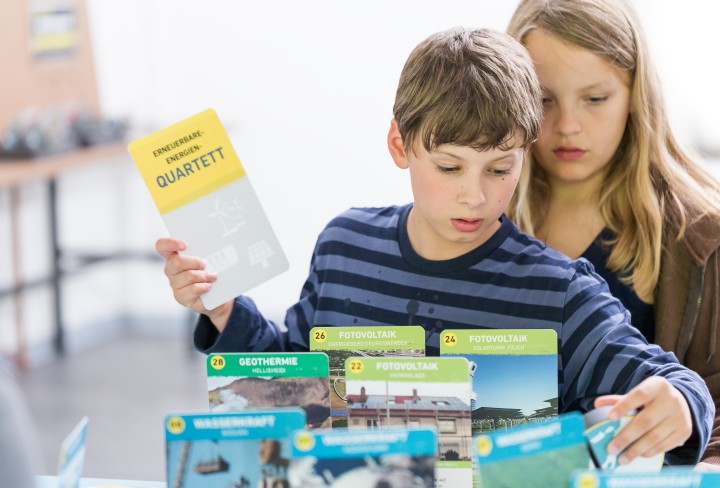
Duration: approx. 120 minutes
Entrance fee: free of charge also for teachers and accompanying persons.
Opening hours: Tuesdays to Fridays from 9 to 17 hours. Also bookable during the winter season!
Options for families are published separately, please consult our event calendar.
The electricity workshop is accessible. There is a disabled toilet in the town hall next door.
The electricity workshop has a separate entrance: from the museum entrance walk towards the town hall, up the steps and then left over the pedestrian bridge.
Visitor information and to book guided tours for school classes and groups:
Kulturinfo-rheinland under Tel.: 02234/9921-555 (Mon-Fri 8-18 hours, Sat, Sun and public holidays 10-15 hours)
or per email to info@kulturinfo-rheinland.de
If you require specialist advice then just contact Sonja Nanko, Scientific Consultant at the Kraftwerk Ermen & Engels (Power Plant), sonja.nanko@lvr.de or Tel. 02263/9285114.
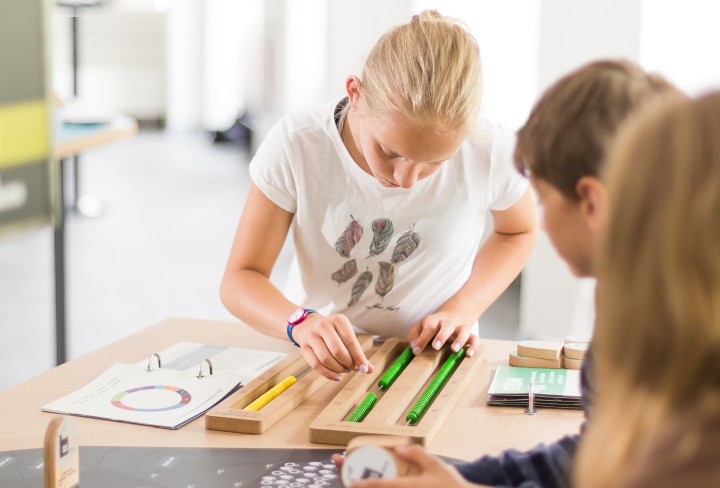
MINT at the Museum
The electricity workshop is a place of out-of-school learning which encourages the fun of resolving planning, scientific and technical problems in the discussion about the topic electricity and power supply. At the same time the topics relate to the everyday life of children and adolescents. At the different workstations the pupils discuss amongst themselves in small groups. In this way opinion-forming and social competence are developed in addition to technical discussion. The electricity workshop covers process-related competence and specialised topics from natural science education, communicates these and delves deeper into them.
The electricity workshop demonstrates through play how power is generated and distributed. The workstations provide numerous points of contact with the subjects design/technology, social studies/geography and natural sciences/physics.
In small groups the pupils discuss various questions relating to the topic energy. The stations designed on a play level are linked to the natural science subjects and design/technology.
Topics related to everyday life such as power consumption in a household permit personal judgements and assessments. The pupils organise themselves in small groups, allocate the tasks and work out results together. This option is based on the subjects – physics, geography and compulsory optional subject – technology.
The pupils learn the laws of physics and discuss social, ecological and economic components of power generation and distribution. The visit is suitable to supplement the subjects physics and geography.
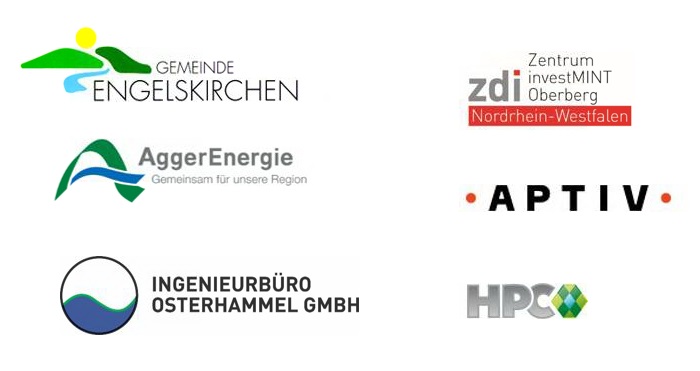
LVR-Industriemuseum
Kraftwerk Ermen & Engels
Engels-Platz 2
51766 Engelskirchen